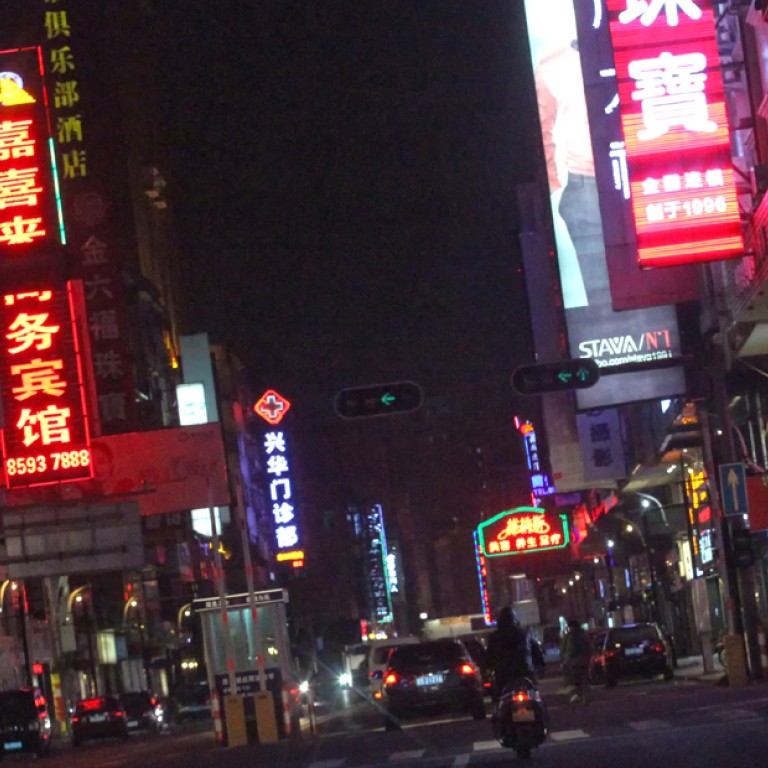
Dongguan cabbies launch strike amid business slowdown
Its streets were once paved in gold for taxi drivers, but the recent crackdown on the sex industry has affected the local business
Dongguan authorities are considering reducing licence rental fees for taxis after many cabbies went on strike yesterday, protesting against a steep drop in their business that some believe is tied to the recent crackdown on the city's once-booming sex industry.

Several cabbies disputed the official account and said thousands of drivers - not just 50 - were taking part in the strike.
"We organised the strike for a few days and notified most taxi drivers across the city through fliers and via phone messages," said a taxi driver who spoke on condition of anonymity.
"I have made only about 5,000 yuan in total since February when the raids on prostitutes began," he lamented.
The man estimated that about 70 per cent of Dongguan's taxi drivers were taking part in the strike.
The official website of the Dongguan transportation authority said the city had some 7,691 cabbies.
Many Dongguan residents complained yesterday of being stranded by the labour action.
"It has been so hard to get a taxi since noon," resident He Hua said. "I was refused service by at least 10 cabs."
The taxi drivers said they were protesting against high rental fees that they had to pay taxi operators, and hoped the strike would raise public awareness about their plight.
"We have barely made any money since the end of the Lunar New Year, especially during the night shift," said a 45-year-old driver originally from Sichuan . "No one shows up on the streets after 11pm now. My income has dropped 50 per cent."
The cabbie said that while sex workers could relocate to other markets, the taxi drivers had to "keep paying 8,000 yuan every month to the taxi operator for each cab because we have signed long-term contracts".
The city's taxis are controlled by a few government-sanctioned operators, who have intertwined financial relations with the local authorities.
A similar arrangement exists in many urban centres and has been widely criticised by the public, who believe that it creates opportunities for corruption and profiteering.
Prostitution was once rife in Dongguan, a former industrial hub that turned to the sex trade after its manufacturing sector tumbled in the wake of the global financial crisis in 2008.
The local government started a three-month crackdown on the sex industry after state television exposed the city's robust sex trade in a programme broadcast on February 10.
Additional reporting by Echo Hui

